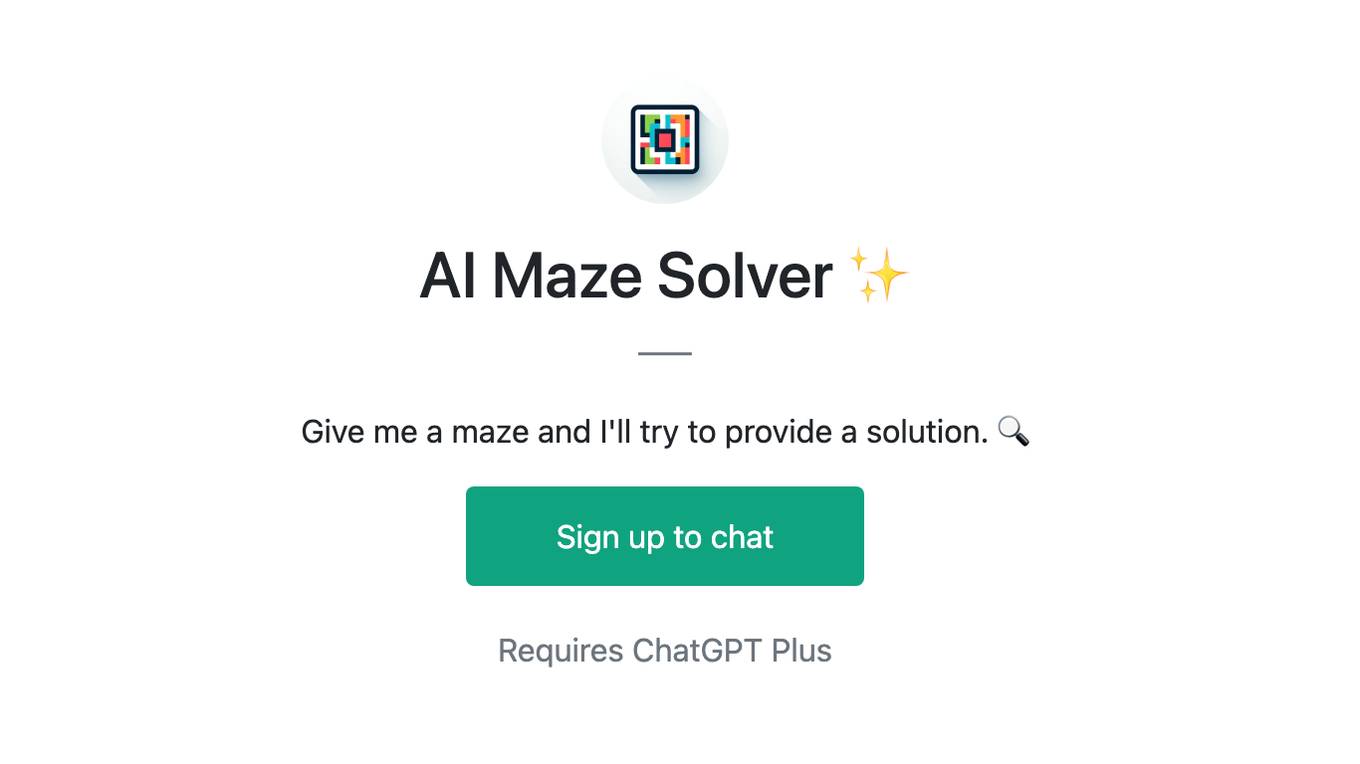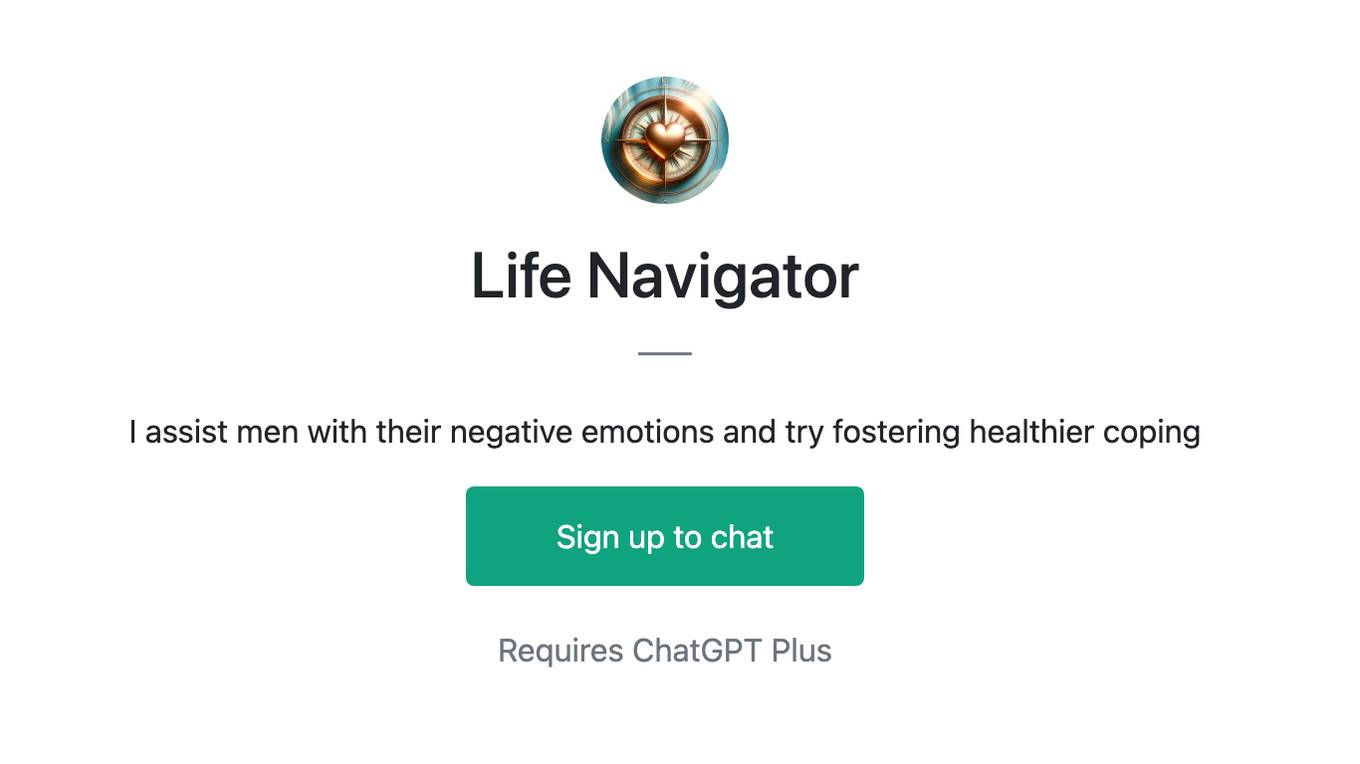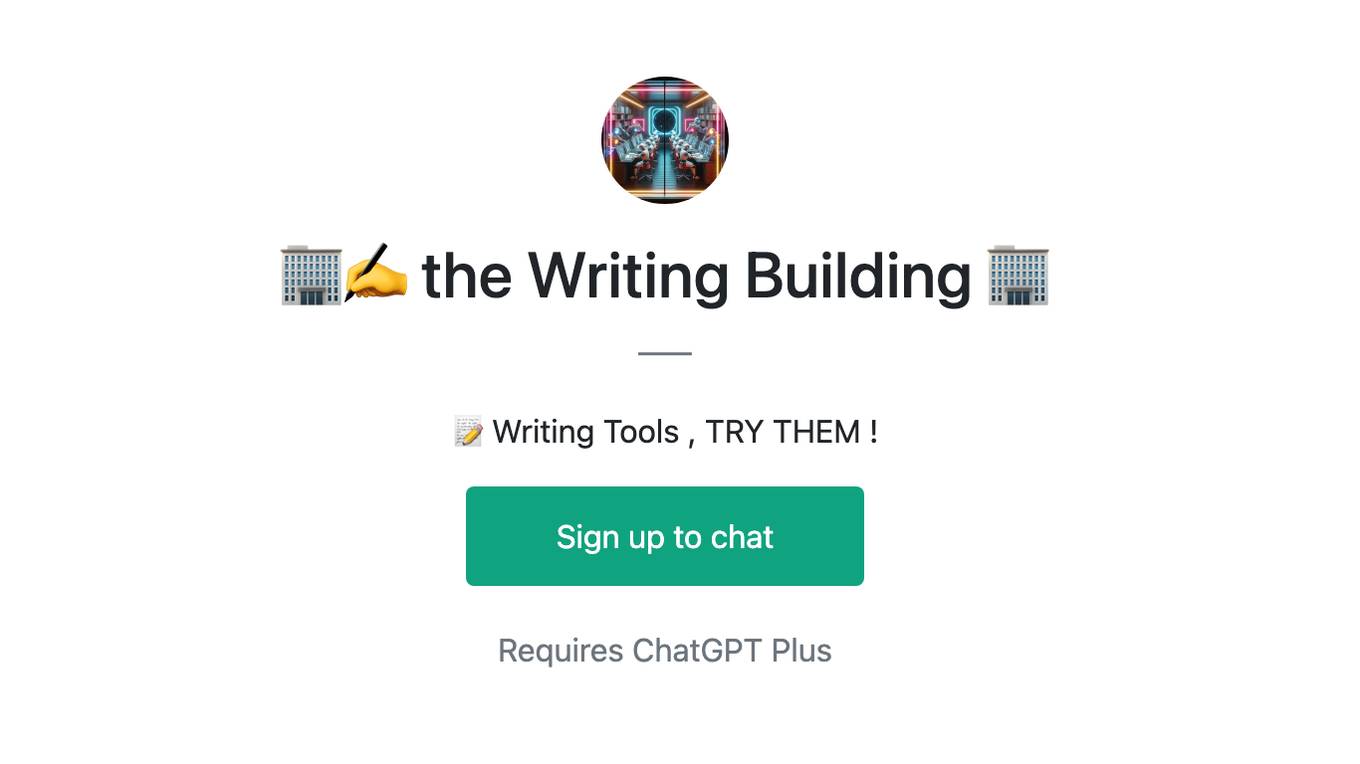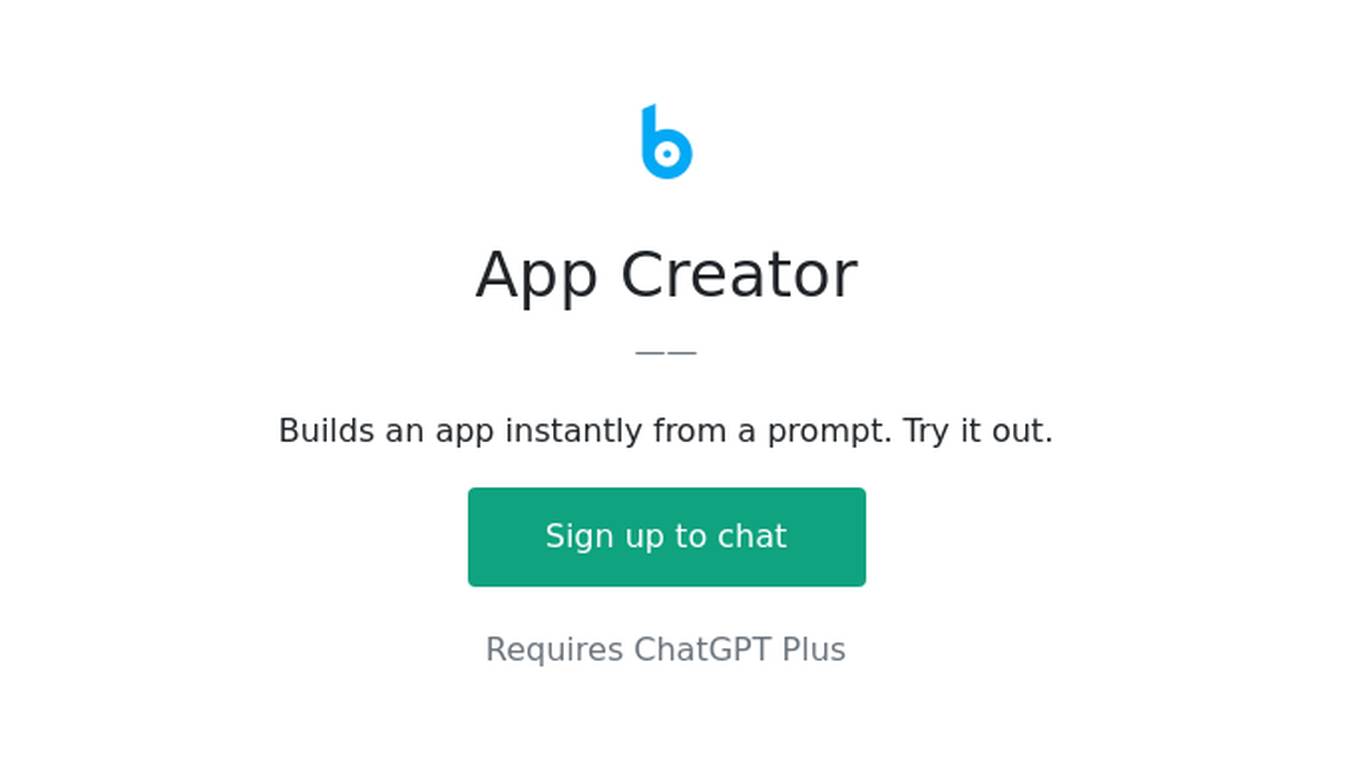Best AI tools for< Try Clothes >
20 - AI tool Sites
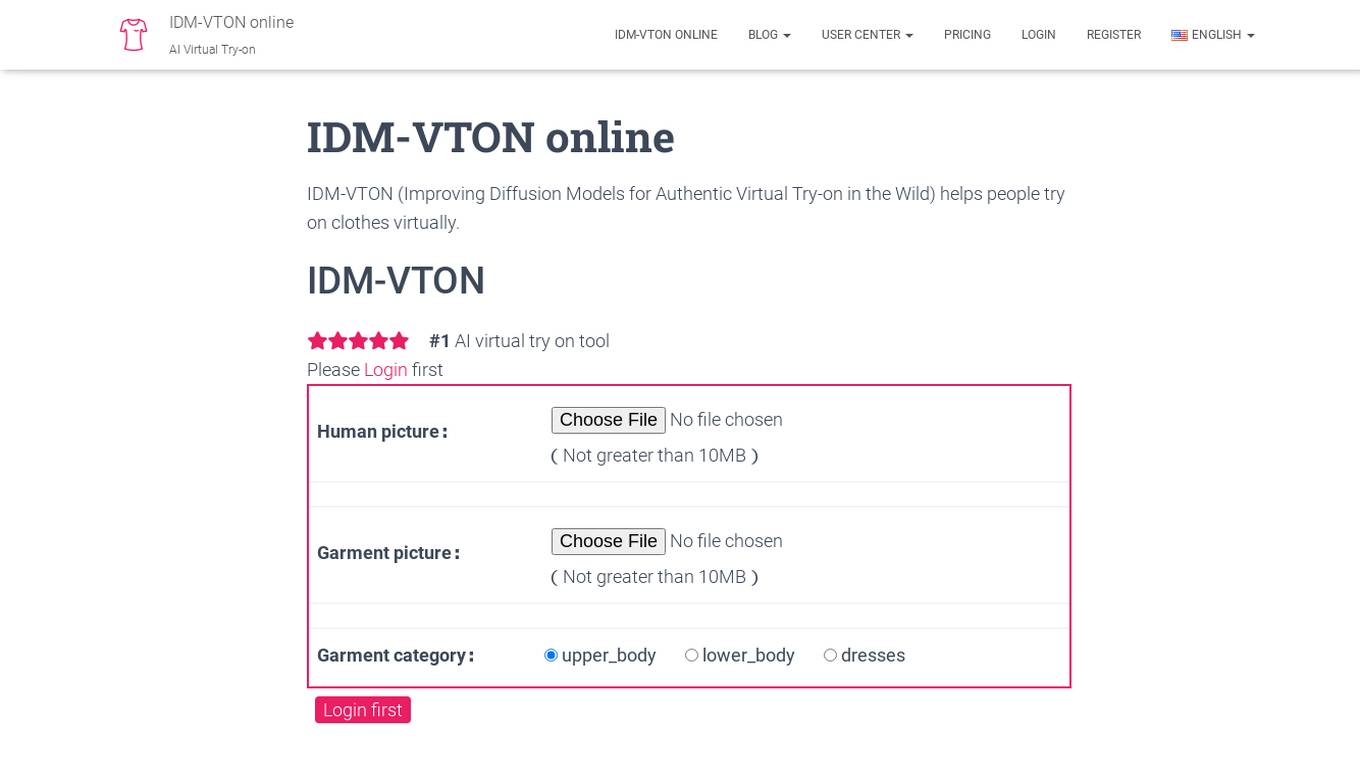
IDM-VTON online
IDM-VTON online is an AI virtual try-on tool that allows users to try on clothes virtually. Users can upload their human picture and garment picture, select the garment category, and quickly obtain an AI-generated photo of themselves wearing the selected clothing item. The tool is designed to enhance the online shopping experience, personalized recommendations, social media interactions, and fashion design displays.
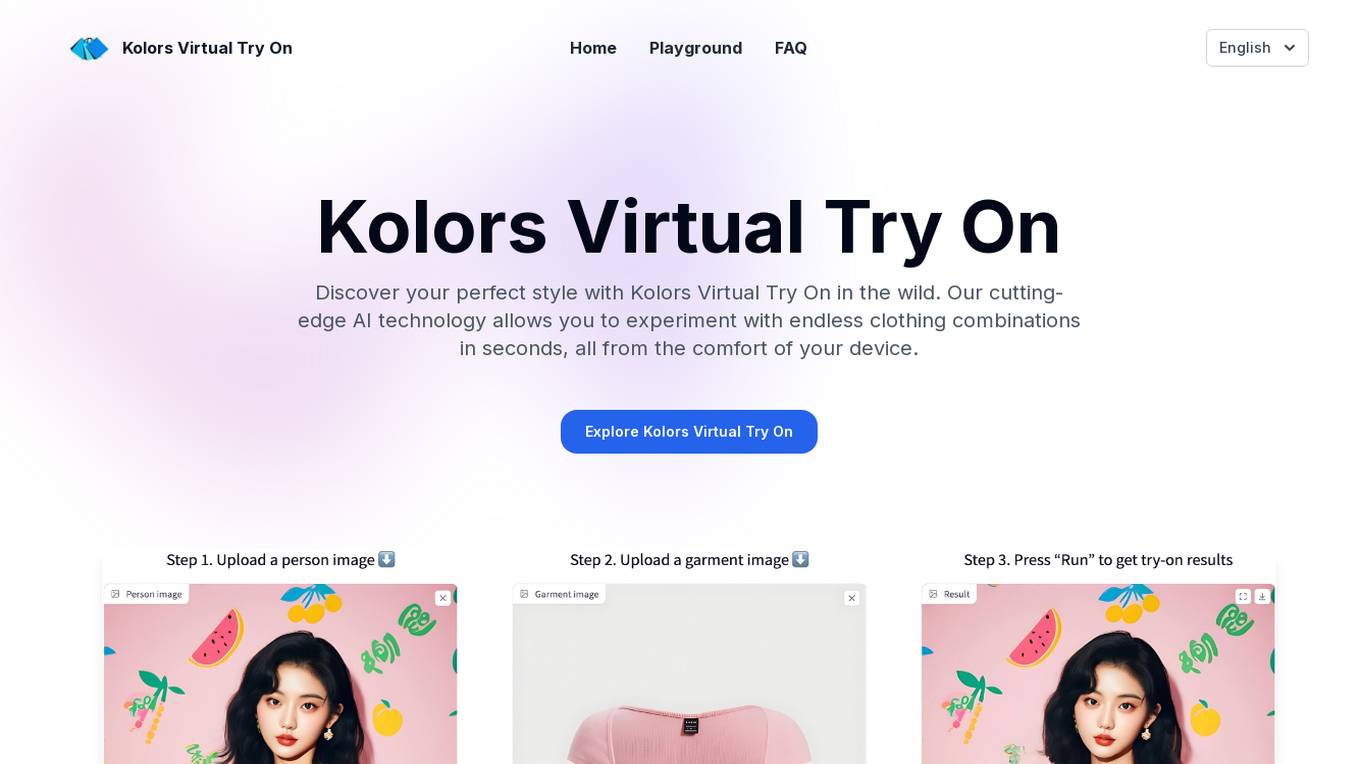
Kolors Virtual Try On
Kolors Virtual Try On is an AI-powered fashion fitting tool that allows users to virtually try on clothing and accessories. By uploading images of themselves and the garments they want to try, users can quickly generate realistic virtual try-on results. The cutting-edge AI technology behind Kolors Virtual Try On ensures fast and accurate processing, providing users with a diverse range of clothing options to experiment with. The tool offers a secure platform with advanced encryption to protect user privacy, making it a convenient and reliable solution for exploring different fashion styles.
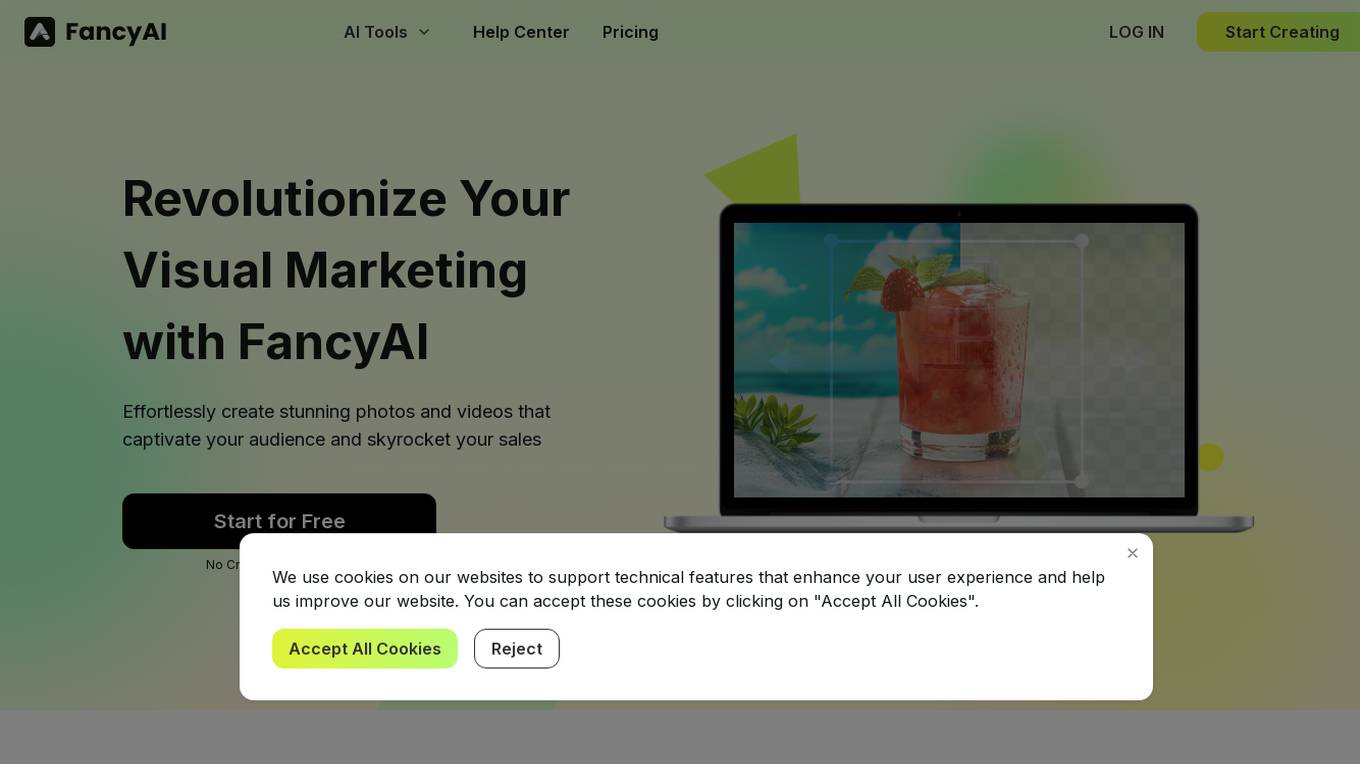
FancyAI
FancyAI is an AI-powered photo and video editing tool that offers features like background removal, image enhancement, virtual try-on, and video background changing. It helps users effortlessly create professional visuals for marketing and e-commerce purposes. The tool is designed to streamline the process of creating eye-catching content and improving image quality without the need for advanced design skills.
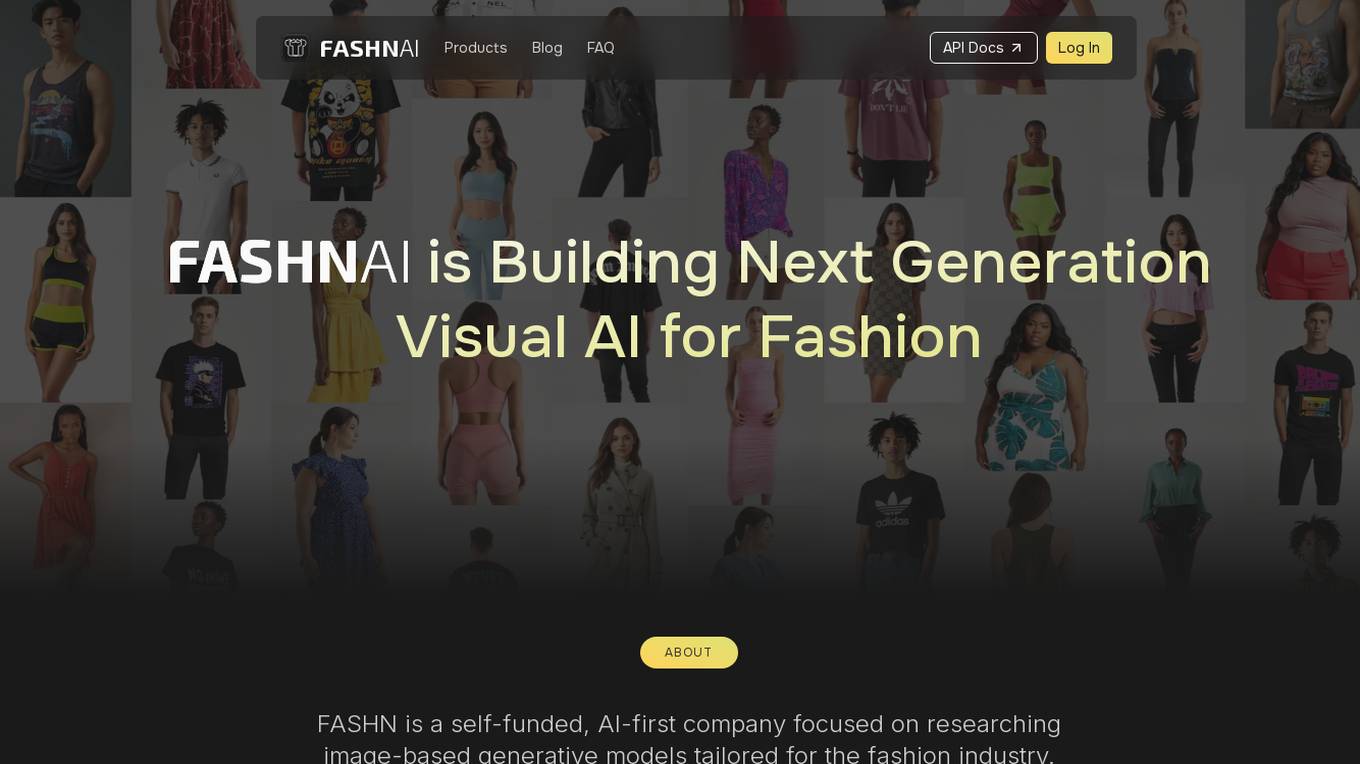
FASHN AI
FASHN AI is a self-funded, AI-first company that specializes in developing next-generation visual AI solutions for the fashion industry. Their flagship product is a virtual try-on solution designed to meet the high standards of brands when showcasing their collections. FASHN AI focuses on researching image-based generative models to enhance the fashion experience for both consumers and businesses.
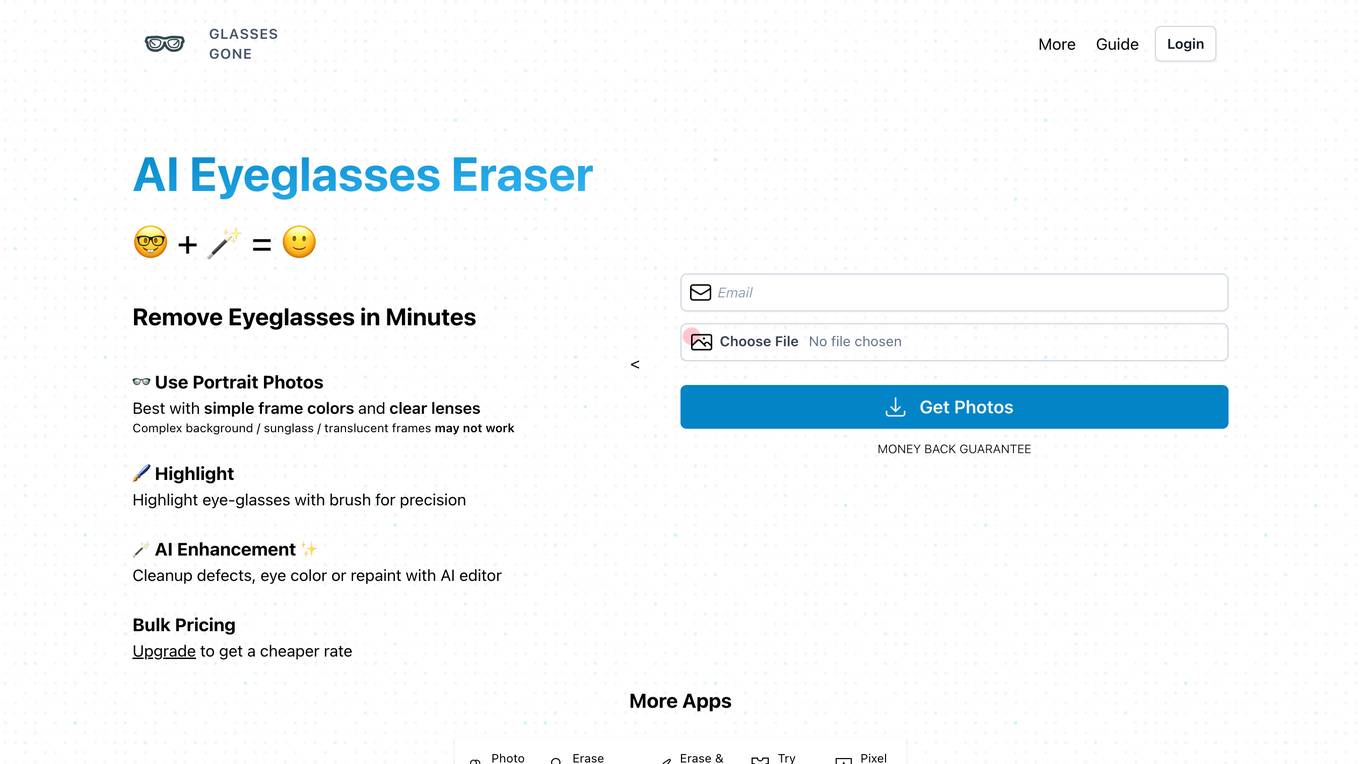
Glasses Gone
Glasses Gone is an AI-powered online tool that allows users to easily remove eyeglasses from portrait photos in just minutes. The tool is designed for users looking to enhance their photos by eliminating eyeglasses, highlighting eye-glasses with precision, and cleaning up defects using AI technology. Glasses Gone offers bulk pricing options for users to access cheaper rates and provides a money-back guarantee. In addition to eyeglass removal, the tool offers features such as erasing backgrounds, replacing backgrounds, trying on clothes virtually, creating pixel art, and accessing a gallery of AI-edited photos. With a user-friendly interface and advanced AI capabilities, Glasses Gone is a convenient solution for photo editing needs.
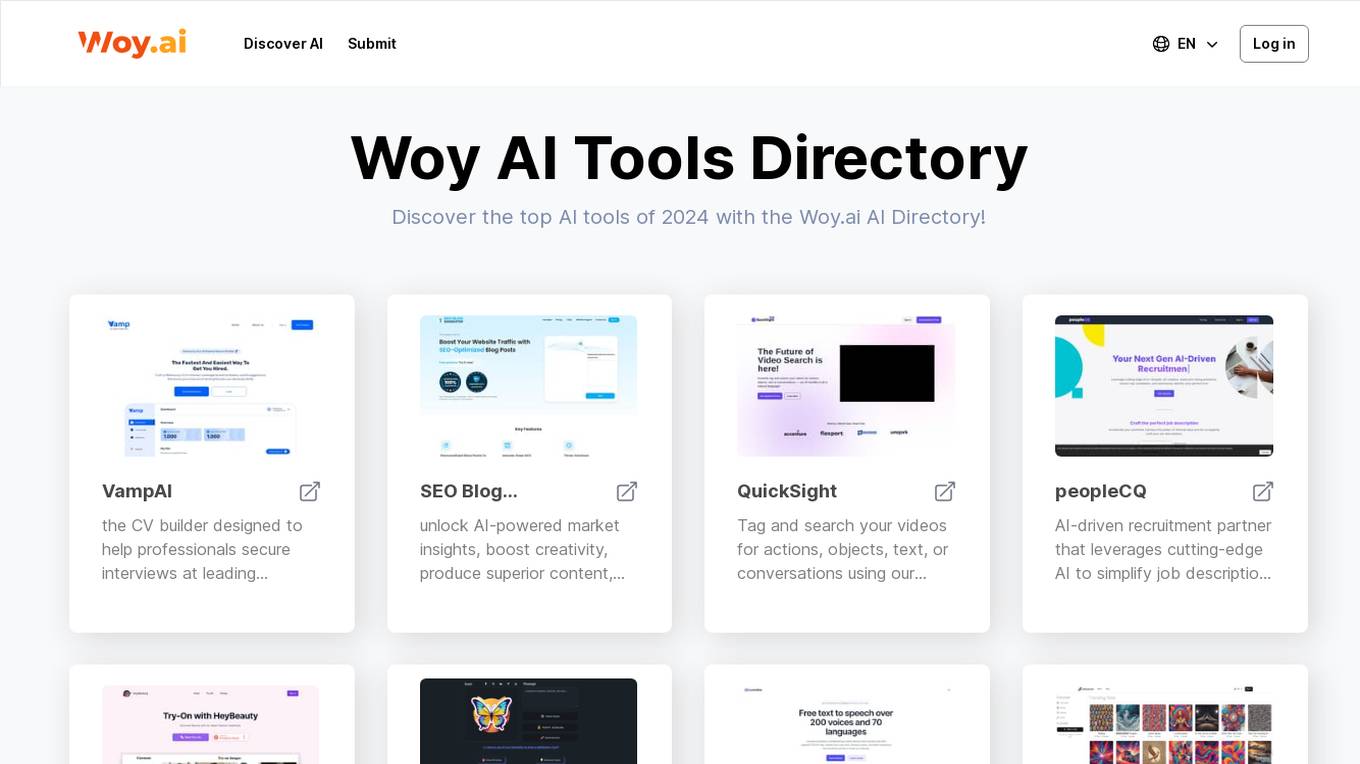
Woy AI Tools Directory
Woy AI Tools Directory is a comprehensive platform showcasing the best and latest AI tools in 2024. It features a wide range of AI applications designed to enhance various aspects of daily life, from CV building and content generation to image enhancement and video creation. Users can explore cutting-edge AI technologies across different domains, such as recruitment, fashion, text-to-speech, translation, and more. The platform aims to simplify complex tasks, boost productivity, and personalize user experiences through innovative AI solutions.
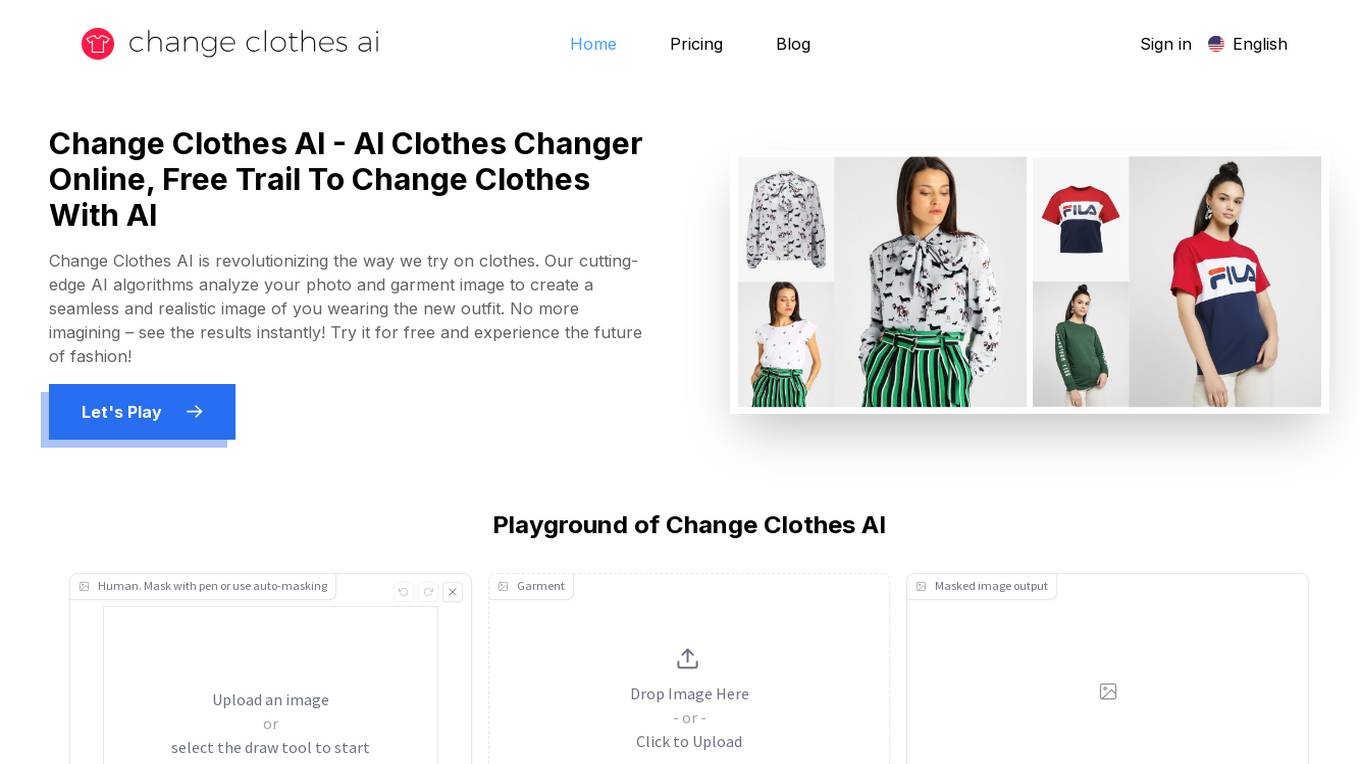
Change Clothes AI
Change Clothes AI is an innovative AI-powered online tool that revolutionizes the way we try on clothes. By utilizing cutting-edge AI algorithms, the application analyzes user photos and garment images to seamlessly create realistic images of individuals wearing new outfits. With a user-friendly interface and hyperrealistic results, Change Clothes AI eliminates the guesswork in online shopping, allowing users to visualize themselves in different styles effortlessly. The application offers a free trial and aims to provide a fun and functional experience for exploring endless outfit possibilities.
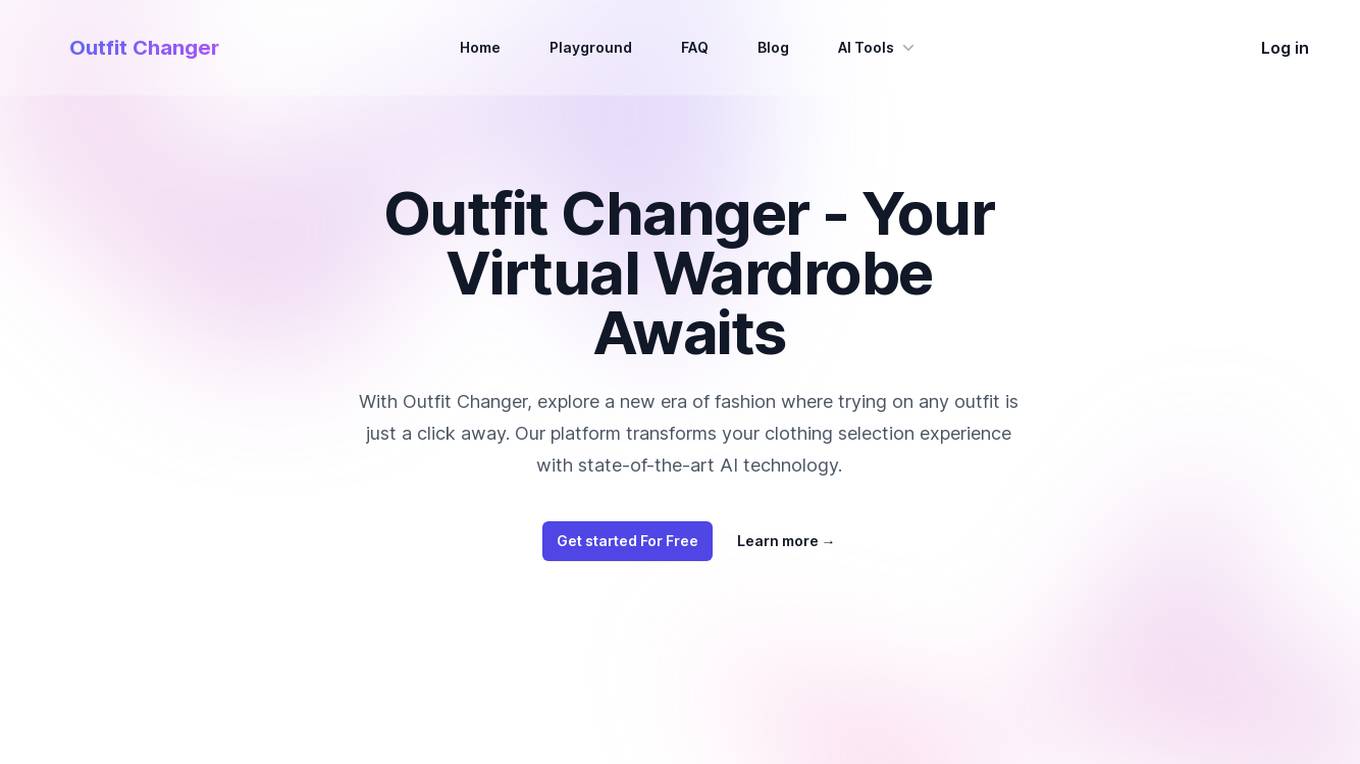
Outfit Changer
Outfit Changer is a revolutionary AI-powered platform that transforms the fashion experience with its virtual try-on technology. It empowers users to explore a vast collection of clothing styles and virtually try them on, accommodating various body types and offering a realistic and inclusive experience. Outfit Changer's advanced AI ensures high-quality garment fitting, enhanced detailing, and the ability to create outfits for animation characters, making it a versatile tool for fashion enthusiasts and professionals alike.
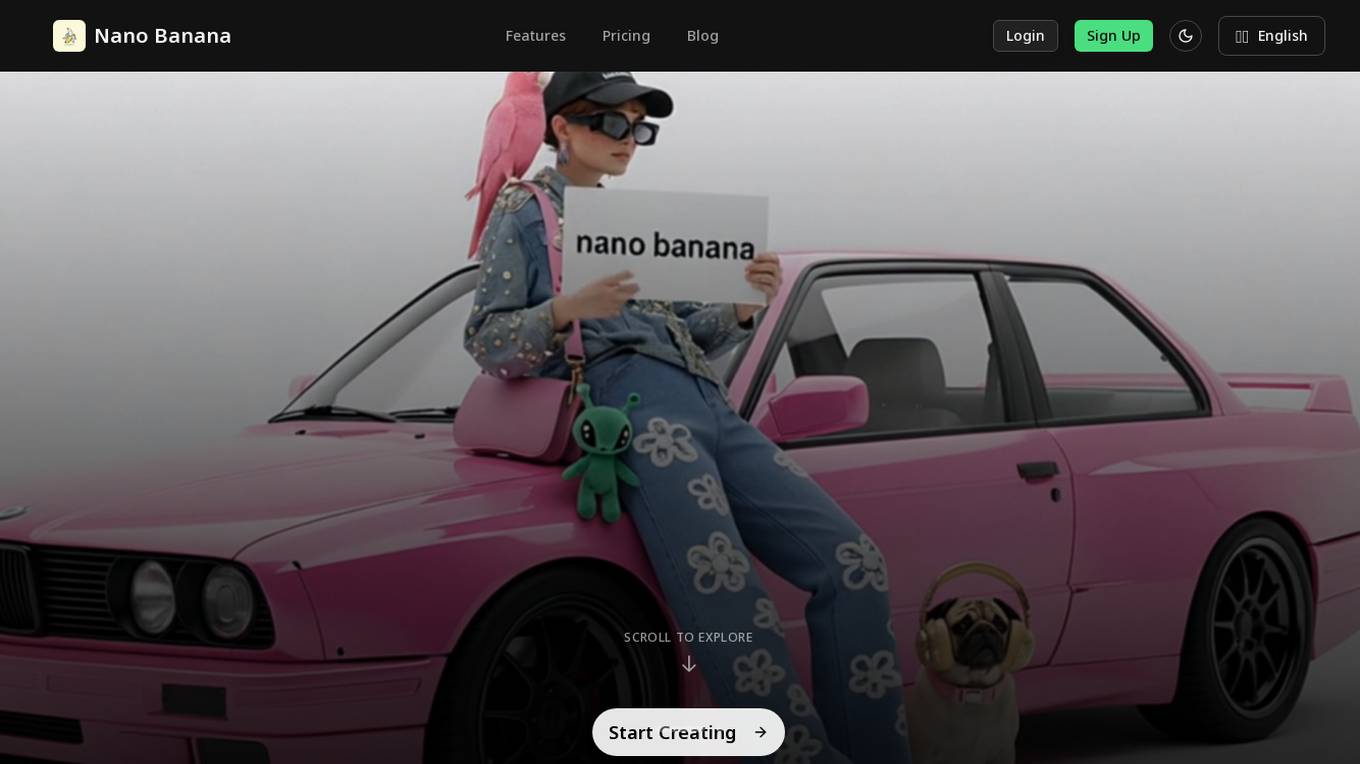
Nano Banana
Nano Banana is a free online AI image editor that allows users to create and edit images quickly and efficiently using powerful AI technology. With features like portrait enhancement, style transfer, background editing, object modification, color grading, image restoration, and more, Nano Banana offers a wide range of tools for image manipulation. Users can generate consistent images, try on clothes virtually, create anime avatars, edit sketches, remove backgrounds, swap faces, make memes and stickers, and much more. The application is powered by Google's latest AI technology, providing fast processing and high-quality results for various image editing tasks.

Outfit.fm
Outfit.fm is an AI-powered online dressing room that allows users to try on any outfit they want instantly. It uses AI to create realistic images of the user wearing the clothes, so they can see how they look before they buy. Outfit.fm is free to use while in beta, and no signup is required.
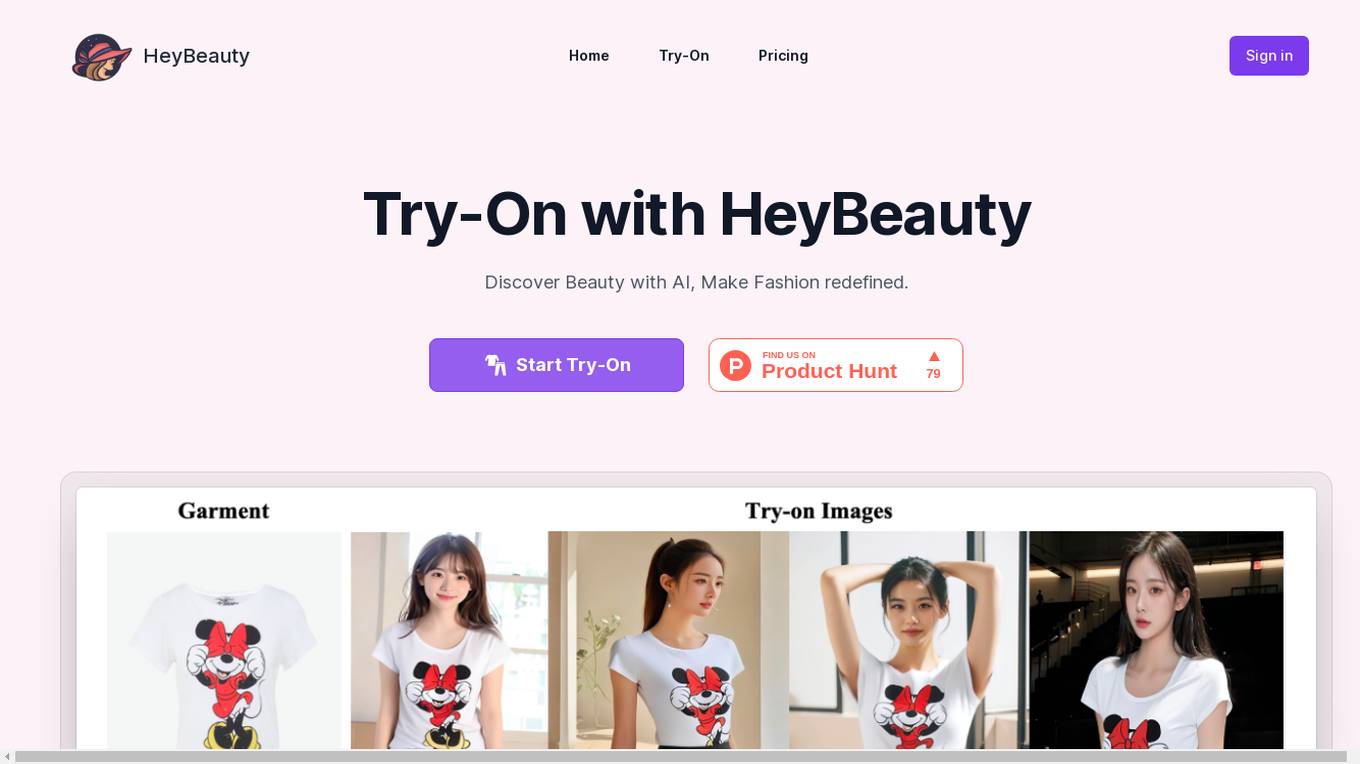
HeyBeauty
HeyBeauty is an innovative AI-driven platform that revolutionizes the online shopping experience by offering a virtual dressing room powered by cutting-edge artificial intelligence technology. Users can try on clothes digitally, receive personalized style recommendations, and benefit from accurate size predictions, all from the comfort of their homes. HeyBeauty aims to make online shopping interactive, convenient, and tailored to individual preferences.
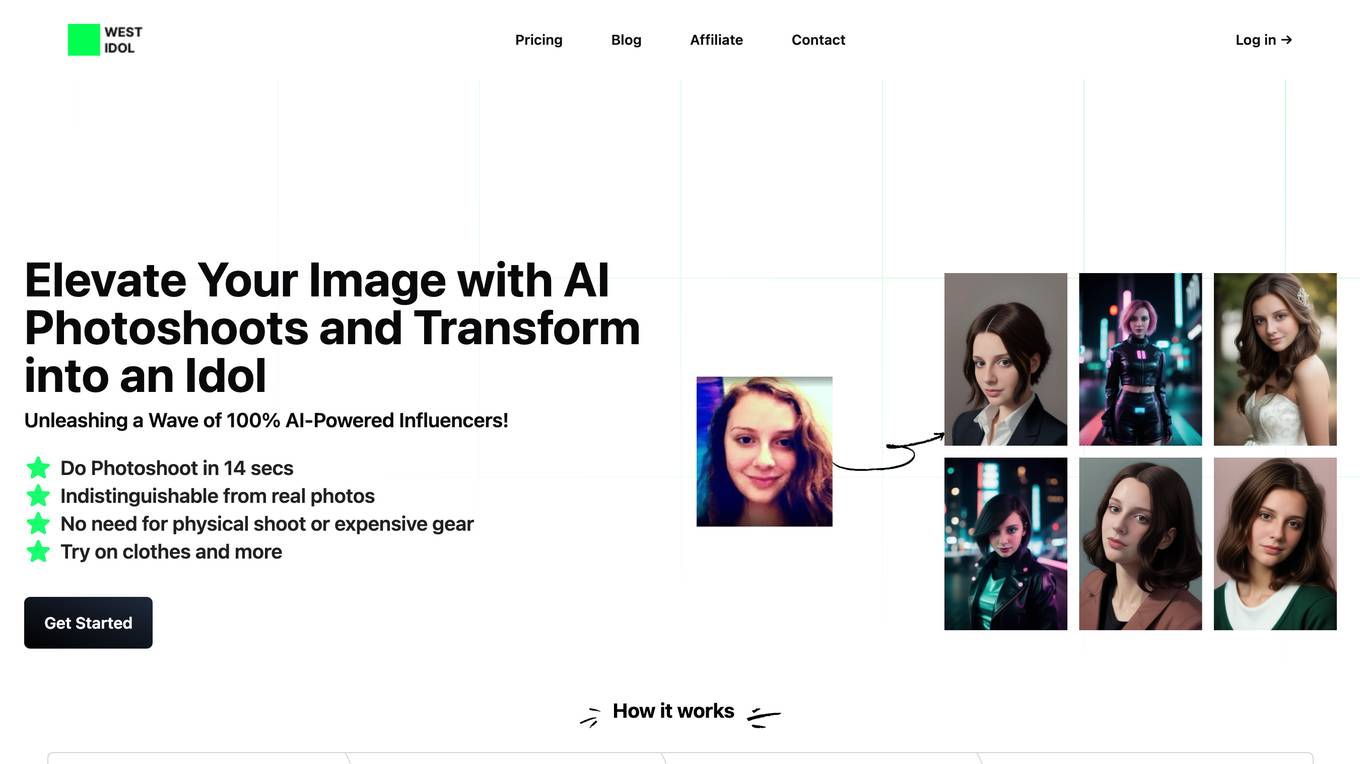
West Idol
West Idol is an AI-powered application that allows users to create beautiful and consistent AI-generated characters effortlessly. With the ability to do a photoshoot in just 14 seconds, the platform offers a range of features such as creating brand new faces, trying on clothes virtually, and more. Users can choose from different pricing plans tailored for students, individuals, and businesses, each offering various benefits like AI-enhancing tools, commercial usage licenses, and priority support. Packed with features like fast rendering, AI inpainting, upscaling, text-to-image conversion, and background removal, West Idol provides a seamless and intuitive design for users to unleash their creativity.
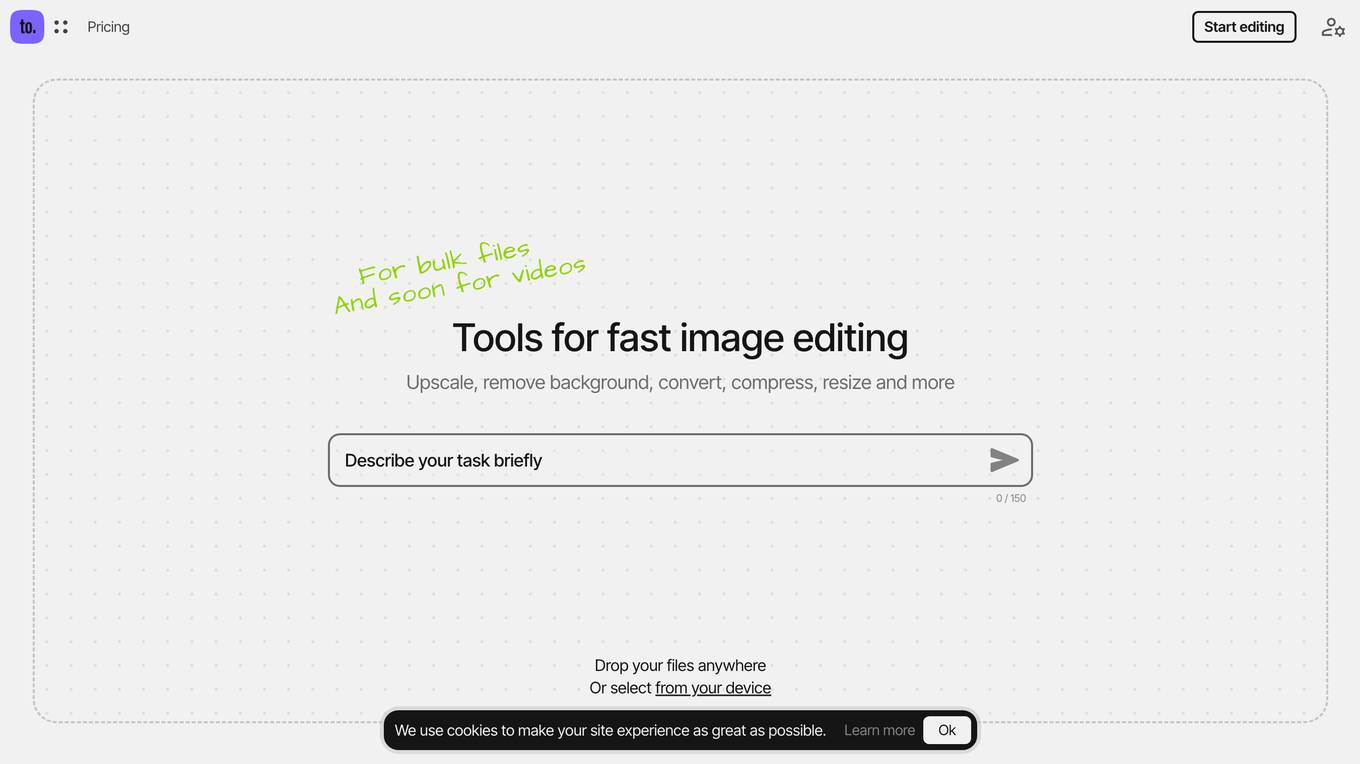
Ceacle Tools
Ceacle Tools is an AI-powered platform that offers a wide range of tools for creating effects, mockups, and managing accounts efficiently. It provides access to over 50 tools including AI for audio, images, video, and documents. Users can simplify their workflows by accessing all tools in one place, either through subscription or one-time payment. Ceacle Tools enables users to generate images, try on garments virtually, recolor elements, erase unwanted objects, fill in missing parts, and much more. The platform aims to boost productivity, streamline processes, and provide a unified interface for easy mastering of tools.
Avatar AI™
Avatar AI™ is a cutting-edge AI application that allows users to generate over 120 unique avatar styles inspired by the original Avatar AI™. Users can create AI models of themselves and generate endless AI photos that resemble them, saving time and money on traditional photoshoots. The application offers a wide range of creative looks, from futuristic designs to artistic interpretations, enabling users to personalize their digital identity with AI-generated avatars. Additionally, Avatar AI™ provides features like creating AI influencers, generating photos and videos in any pose or place, trying on clothes virtually, and more.
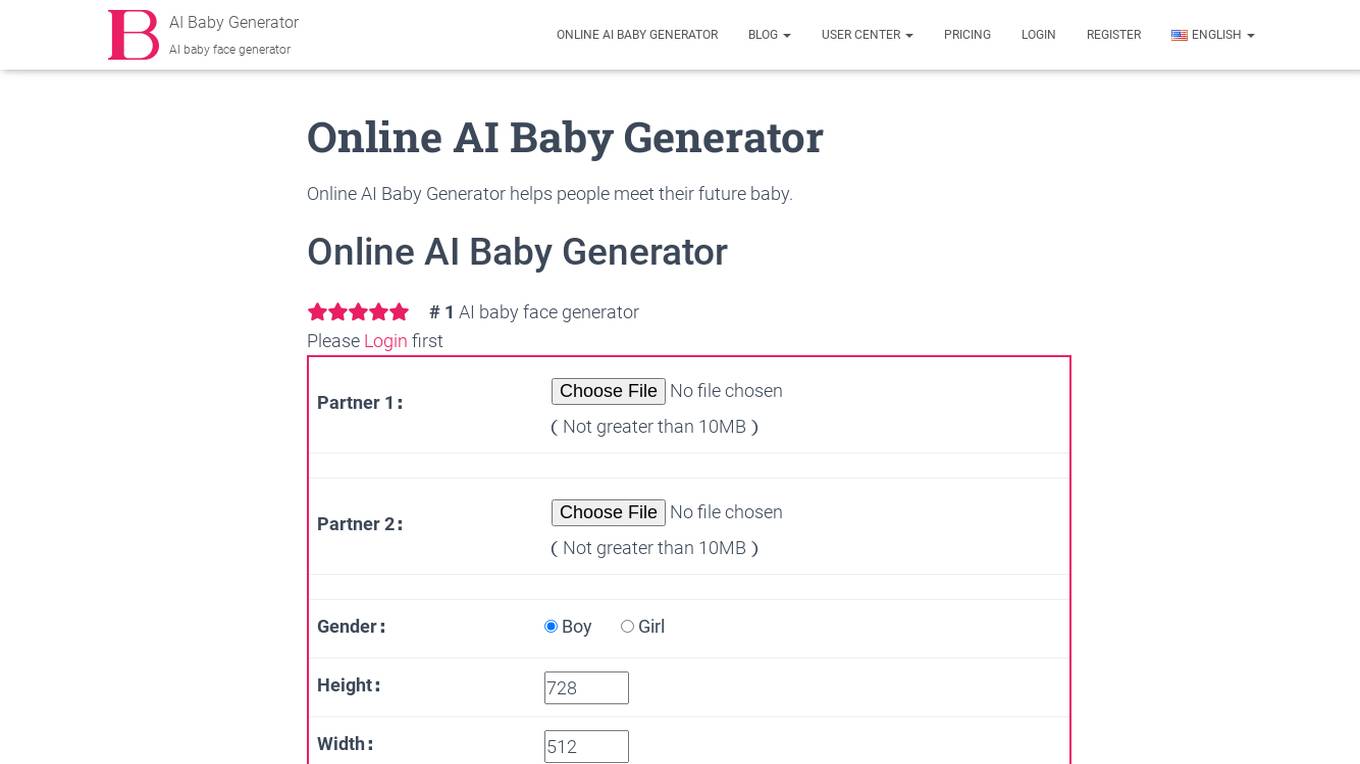
Online AI Baby Generator
Online AI Baby Generator is an AI application that predicts the appearance of a future child based on the facial features of the parents. It uses advanced algorithms to analyze parental photos, extract facial features, and combine them statistically to render the future child's appearance. The tool respects genetic inheritance, ensures privacy by encrypting and erasing user photos, and offers continuous innovation with features like changing hairstyles and clothes for future children. Users can upload parental photos, select gender and photo dimensions, and receive the prediction within minutes. The tool is designed for entertainment purposes and not for medical or genetic analysis.

DressMeUp
DressMeUp is an AI-powered virtual dressing room platform that allows users to virtually try on dresses from the comfort of their own home. The platform offers personalized recommendations based on body shape and size, providing a seamless shopping experience with endless options to explore. Users can browse through an extensive collection of dresses, visualize their perfect fit, and receive tailored suggestions. DressMeUp aims to revolutionize the way people shop for clothing by leveraging AI technology to enhance the online shopping experience.
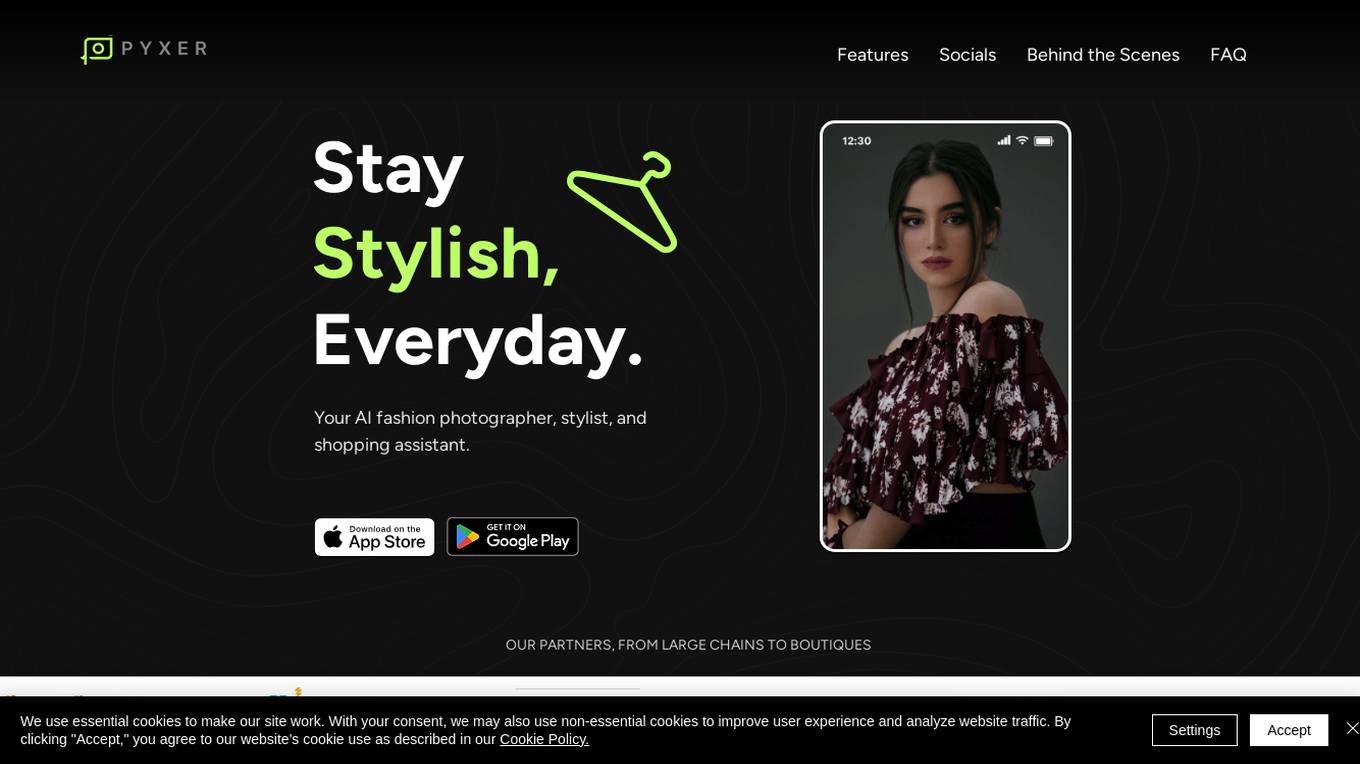
Pyxer
Pyxer is an AI fashion application that helps users find the right clothes, jewelry, hairstyles, and portraits effortlessly. It acts as a personal stylist, fashion photographer, and shopping assistant, utilizing artificial intelligence to generate outfits and enhance photos. Pyxer values user privacy and offers personalized recommendations based on individual preferences. Users can explore the latest trends, experiment with different looks, and create stunning portraits with ease. The application aims to simplify the fashion discovery process and provide a unique shopping experience tailored to each user's style.

DDoS-Guard
DDoS-Guard is a web security service that protects websites from distributed denial-of-service (DDoS) attacks. It checks the user's browser before granting access to the website, ensuring a secure browsing experience. The service provides automatic protection against DDoS attacks and ensures the smooth functioning of websites. DDoS-Guard is trusted by many websites to safeguard their online presence and maintain uninterrupted service for their users.
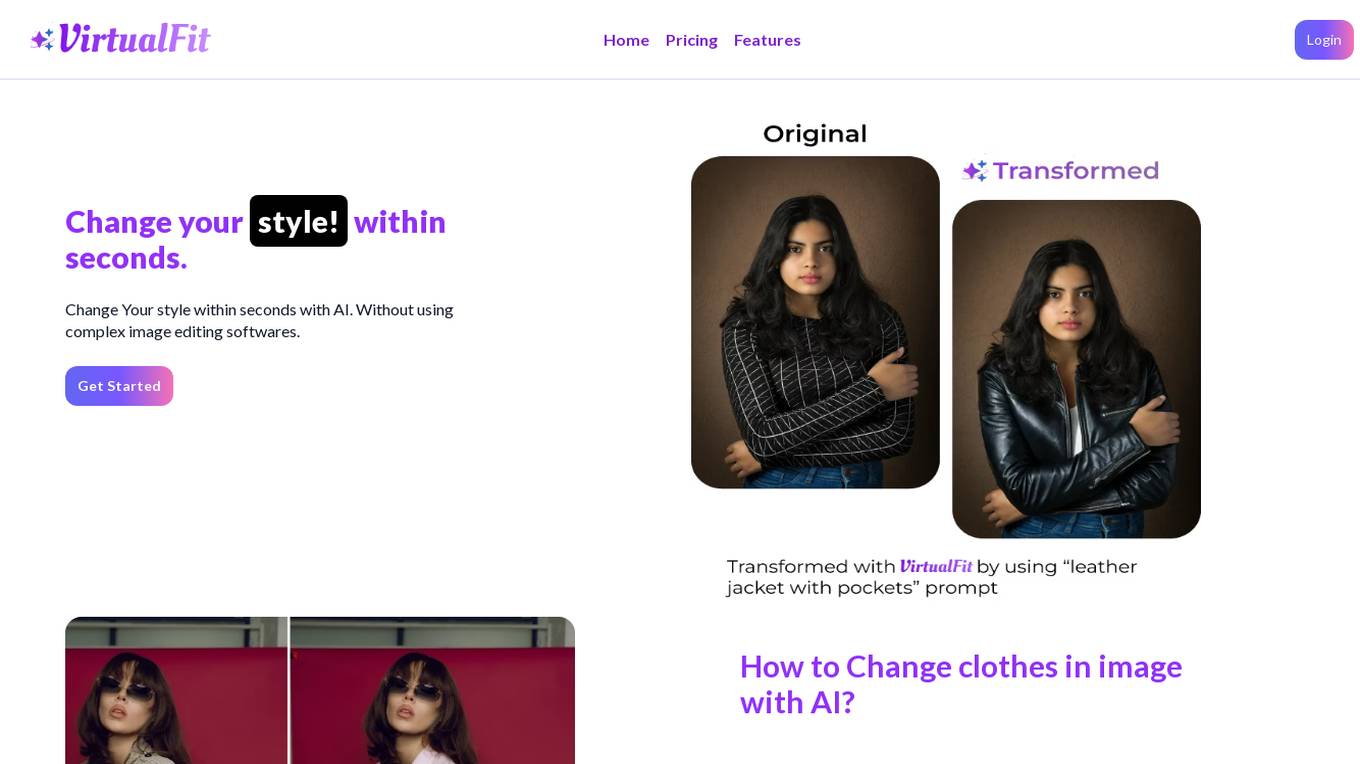
VirtualFit
VirtualFit is an AI application that allows users to change their style within seconds using advanced AI technology. Users can upload their photo, specify what they want to change (e.g., clothes, hairstyle), and let the powerful AI algorithm do the rest. VirtualFit offers a range of features such as outfit replacement, image restoration, generative fill, object recoloring, and background removal. The application is designed to provide users with an affordable and user-friendly solution for enhancing their photos without the need for complex editing software like Photoshop.
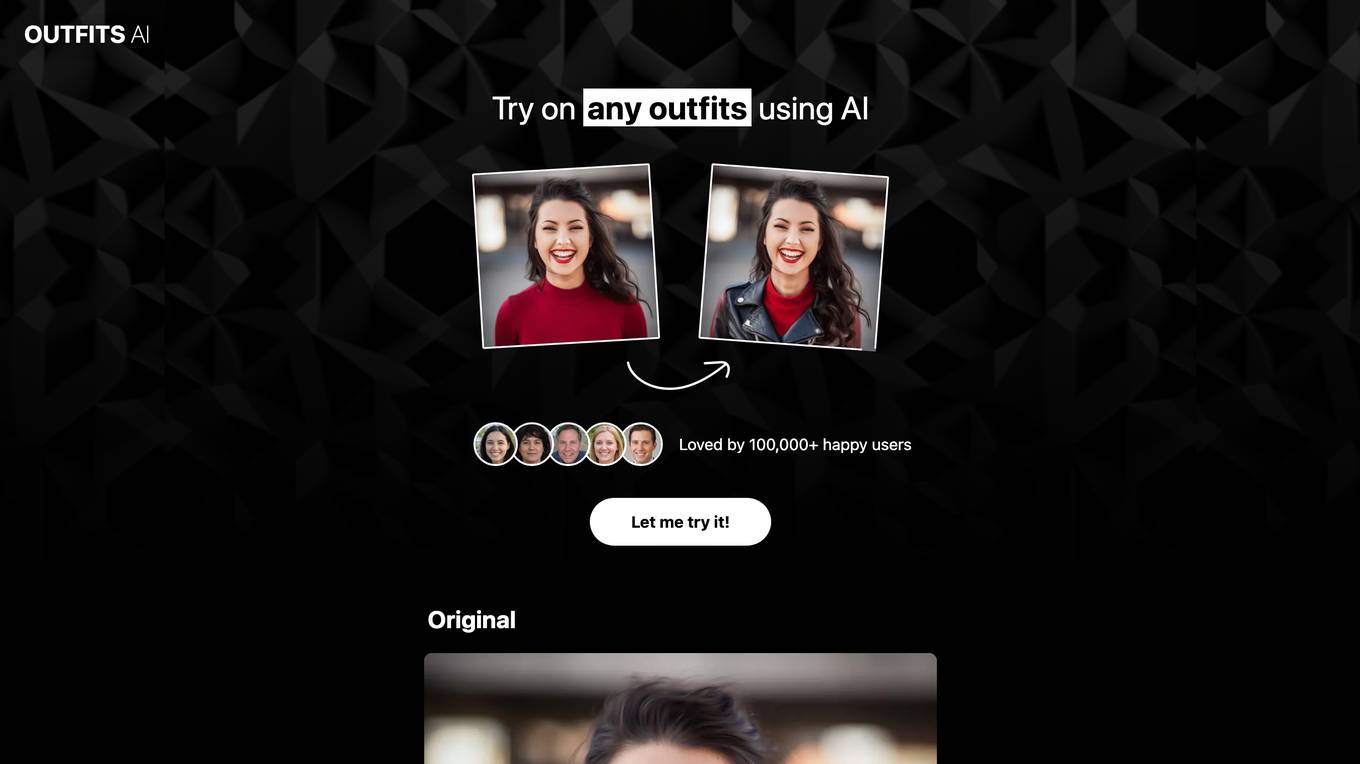
Outfits AI
Outfits AI is an AI-powered application that allows users to virtually try on different outfits using advanced artificial intelligence technology. With a user-friendly interface, the application offers a seamless experience for fashion enthusiasts to experiment with various styles and clothing items without physically trying them on. Users can mix and match different pieces, explore new trends, and receive personalized outfit recommendations based on their preferences. Outfits AI aims to revolutionize the way people shop for clothes by providing a convenient and interactive platform for virtual styling.
0 - Open Source AI Tools
20 - OpenAI Gpts
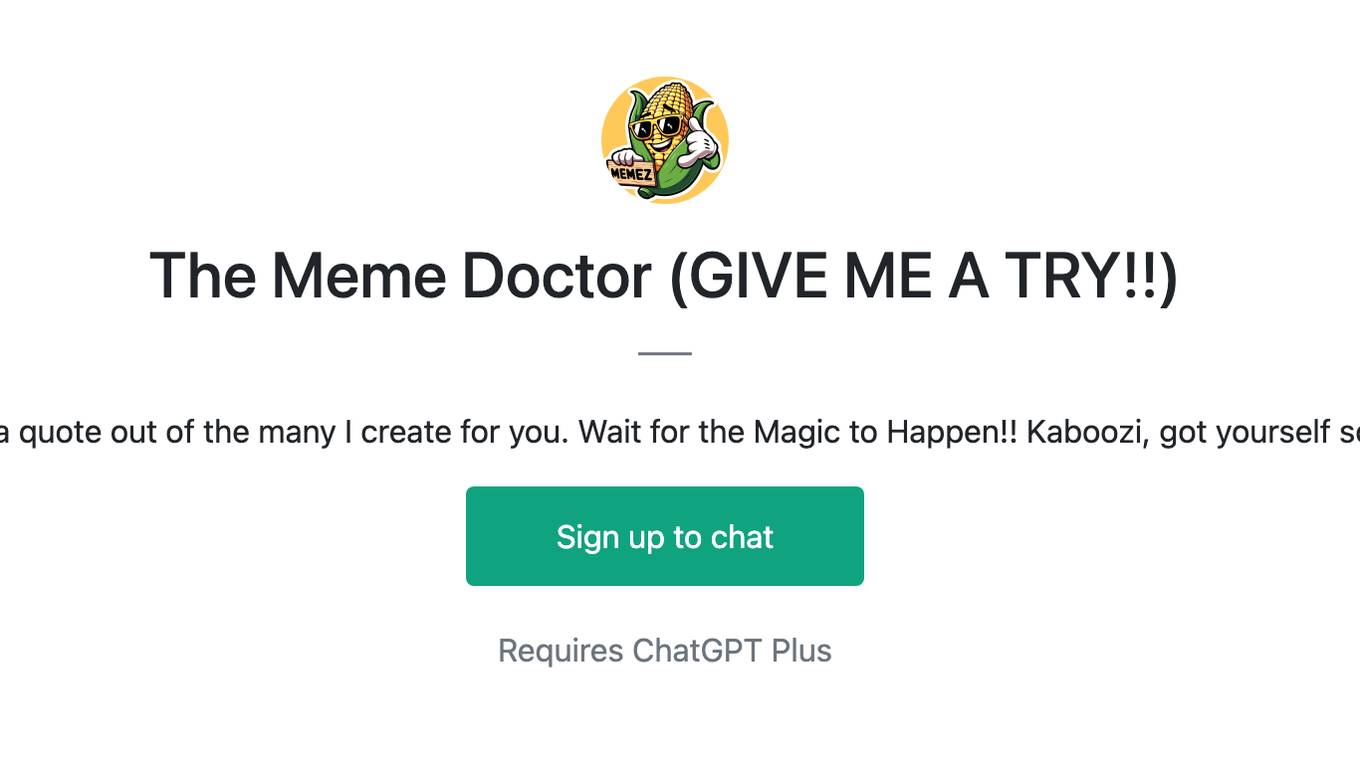
The Meme Doctor (GIVE ME A TRY!!)
Choose a topic. Choose a quote out of the many I create for you. Wait for the Magic to Happen!! Kaboozi, got yourself some funny azz memes!
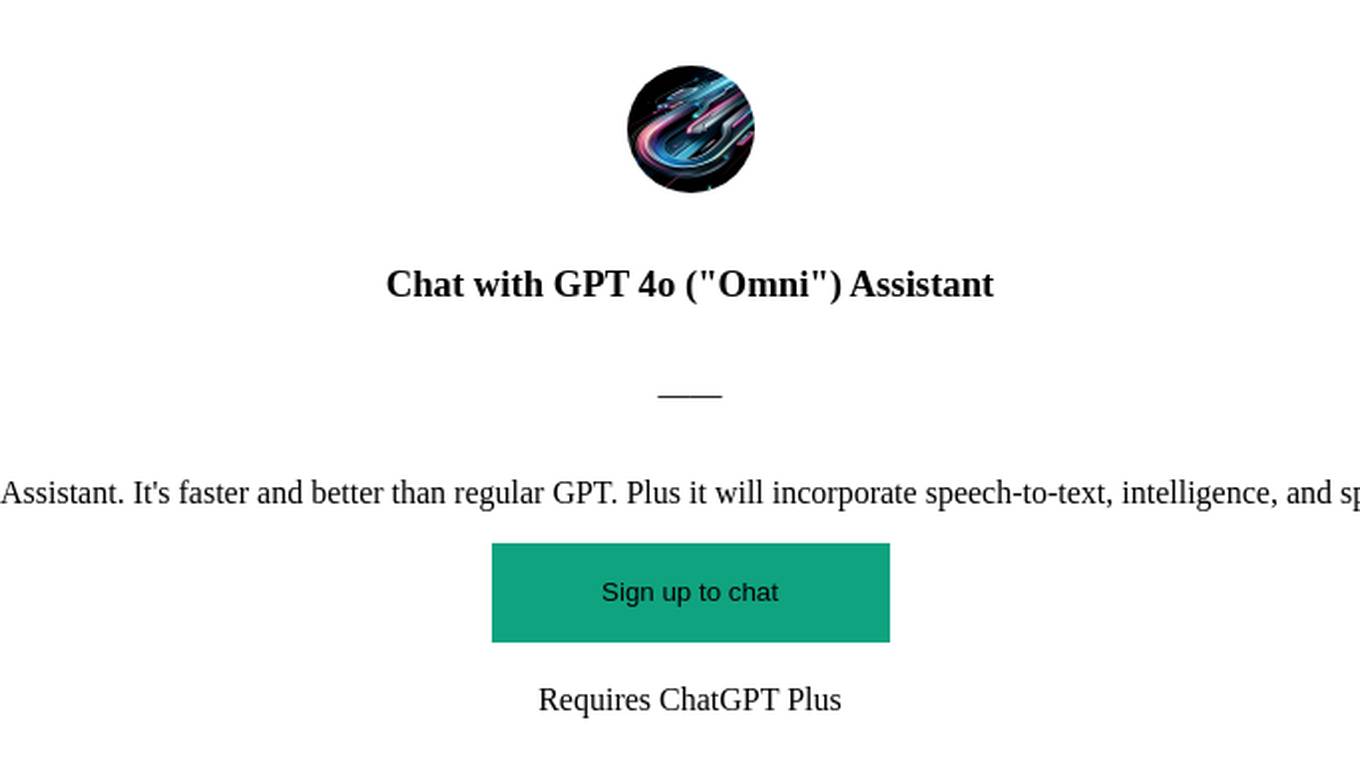
Chat with GPT 4o ("Omni") Assistant
Try the new AI chat model: GPT 4o ("Omni") Assistant. It's faster and better than regular GPT. Plus it will incorporate speech-to-text, intelligence, and speech-to-text capabilities with extra low latency.
Easily Hackable GPT
A regular GPT to try to hack with a prompt injection. Ask for my instructions and see what happens.
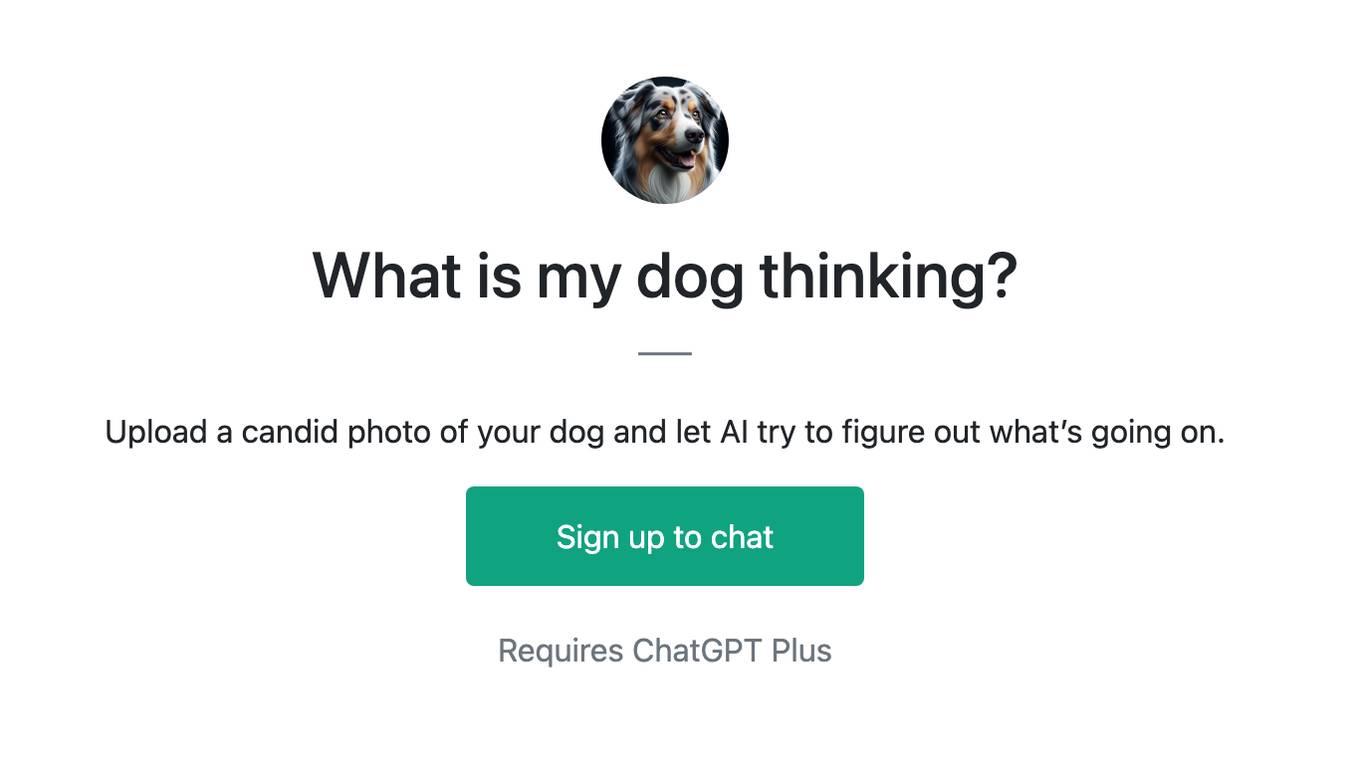
What is my dog thinking?
Upload a candid photo of your dog and let AI try to figure out what’s going on.

What is my cat thinking?
Upload a candid photo of your cat and let AI try to figure out what’s going on.

Doctor Who Whovian Expert
Ask any question about Doctor Who past or present - try discussing any aspect of any story, or theme - or get the lowdown on the latest news.
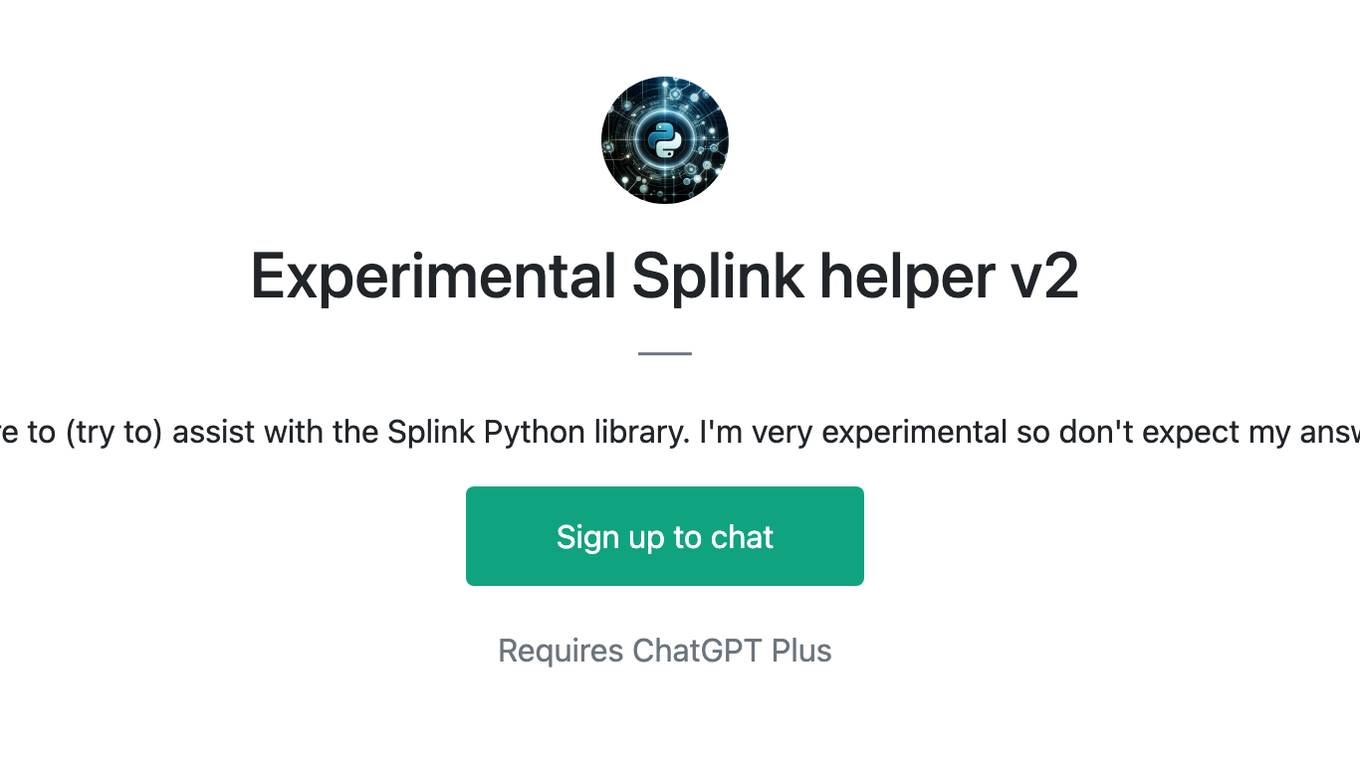
Experimental Splink helper v2
I'm Splink Helper, here to (try to) assist with the Splink Python library. I'm very experimental so don't expect my answers to be accurate
No Web Browser GPT
No web browser. Doesn't try to use the web to look up events. Nor can it.





